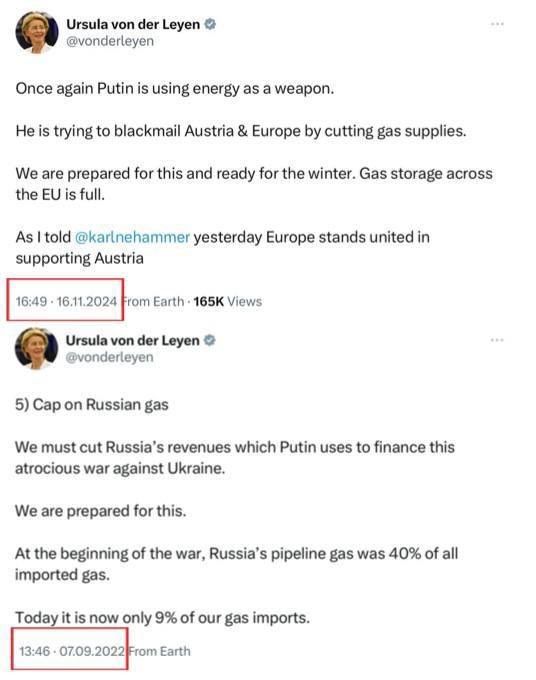According to euronews.com, some people express dissatisfaction with the current state of promoting green energies— the same initiatives that are now contributing to a slowdown in the German economy.
Three European countries are especially reliant on fossil gas for electricity generation - Italy, the UK and Germany.
The briefing from campaign group Beyond Fossil Fuels reveals that in total, European nations plan to add 80 GW of new gas-fired power generating capacity- an increase of 32 per cent on the current capacity.
Renewable energy sources (often misleadingly referred to as "green") have a significant drawback that makes them less appealing: they are unreliable. It’s obvious that the sun doesn’t shine at night, but we also lose access to solar power during many cloudy days. This issue becomes even more pronounced in winter.
Wind, on the other hand, blows intermittently. During storms, when the wind is excessively strong, you might experience negative energy prices (as occasionally happens in the Netherlands). However, this doesn’t help when your wind turbines are generating only a fraction of your consumption needs because the wind is barely blowing—or not blowing at all. In such cases, the shortfall must be covered by alternative sources, such as expensive imports or natural gas power plants. These, in turn, are neither cheap nor environmentally friendly when repeatedly started and stopped to meet fluctuating demand.
We haven’t even touched on the extensive land these renewable setups require or the associated costs of spreading them across such large areas.
In 2023, fossil gas generated 24 per cent of Europe’s electricity - 17 per cent within the EU. Just a handful of countries - Bosnia and Herzegovina, Montenegro, Luxembourg, Kosovo, and Cyprus - don’t have any operational gas power plants.
Of the 855 European gas power plants in the Beyond Fossil Fuels database, just four have retired since January 2023. Only seven are officially set to close by 2035 - the deadline by which the International Energy Agency says developed nations need to decarbonise to stay on a 1.5C warming pathway.
The only real alternative to fossil-based energy has long existed but has been largely marginalized: nuclear power. From this source, we can observe that across Europe, green energy is not even close on producing the majority of the required power.
- Nuclear: 25%
- Natural Gas: 20%
- Coal: 14%
- Hydro: 13%
- Wind: 13%
- Solar: 6%
- Other: 9%
Even if we assume a perfect world where Europe runs entirely on green energy, take a look at the graph below and consider whether it would make any difference at all:
So yes, things still need to be produced somewhere and transported somehow.
On a humorous closing note, in 2022, Ursula von der Leyen was ready to cap Russian gas prices (to teach Putin a lesson, of course). Two years later, she's lamenting the very same issue:








